Libya
He was touted as a possible successor to his enigmatic father, western trained and with strong negotiation skills – only a few would have thought that he would today become a former prisoner whose whereabout will be unknown for security reasons.
The International Criminal Court (ICC) is chasing him, a death sentence hangs around his neck and the internationally back-government of the country his father ruled for decades has ‘condemned’ his release.
Saif al-Islam Gaddafi may not be as controversial as his father Muammar Gaddafi was, but if there is any chance of another Gaddafi enjoying the media limelight as Muammar did – for the good and bad reasons, it definitely will be the 44-year-old.
Who is Saif al-Islam Gaddafi?
1. He is the second child of slain Libyan leader Muammar Gaddafi – born in June 1972. His name Saif al-Islam means sword of Islam in Arabic.
2. Saif was the most politically active child of the ex-leader’s nine children – he was seen as the reformer in the regime and vowed to fight at a time when most of the family fled.
3. He was captured in Libya’s south by a militia group (the Abu Bakr Siddiq Brigade) and held for six years (2011 – 2017) in the town of Zintan.
4. He was known for his negotiation skills having mended relations between Tripoli and the west between 2000 and 2011.
5. The first ICC warrant calling for his arrest was issued in June 2011 charges being that he ordered the repression of protesters against his dad’s regime.
6. He is said to have talked his father out of his nuclear ambitions and negotiated the release of six Bulgarian nurses who infected kids in a Libyan hospital with HIV/AIDS.
7. Other negotiation missions he headed included: compensation for victims of 1988 Lockerbie bombing, 1986 Berlin night club attack and 1989 downing of UTA fligfht 772.
8. Three months before his capture, false information circulated about his arrest, he appeared to much celebration by his father’s supporters before going underground again. He reportedly left Tripoli in August 2011.
9. Whiles in detention in Zintan, a Tripoli court sentenced him to death in absentia in July 2015. The eastern government has granted him amnesty and he is likely to be headed there.
10. An initial release was announced by his lawyers last year but later debunked by his captors. He holds a doctorate from the London School of Economics (LSE).
Key timelines in the Libya crisis
- 1969 – Muammar Gaddafi rose to power
- Feb 2011 – An armed uprising started in the country
- March 2011 – NATO forces entered Libya enforcing a no-fly zone
- June 2011 – The ICC issues an arrest warrant for Gaddafi and his son
- August 2011 – Gaddafi reportedly quit Tripoli as rebels advanced
- October 2011 – He is captured and killed in his hometown of Sirte along with a son
- November 2011 – Saif al-Islam is captured by a militia and held in town of Zintan
- July 2015 – Tripoli court hands death sentence to Saif al-Islam in absentia
- July 2016 – His lawyer announces Saif’s release but it is ‘rubbished’ by his captors
- June 2017 – Second release announced but his whereabouts unknown
- June 2017 – ICC prosecutor issues ‘arrest and surrender’ order for Saif al-Islam
How Libya descended into the present chaos
The north African oil-producer was plunged into an armed conflict in 2011 following an uprising that led to the fall of the regime of Muammar Gaddafi. The North Atlantic Treaty Organization (NATO) joined rebel groups as part of efforts to oust Gaddafi.
NATO primarily enforced a no-fly zone over Libya. After seven months, the UN Security Council voted to end NATO’s mandate on 31 October following the death of Gaddafi. The former leader was captured in his hometown of Sirte and killed by his captors.
Libya is currently split with rival governments holding different parts. Islamic State insurgents also held parts of Sirte until they were recently pushed them out.
Libya has become the biggest security threat in the region whiles Europe continues to suffer floods of illegal immigration which was largely controlled during the Gaddafi regime.
Shaban Abdur Rahman Alfa
Africanews web journalist
Pointe-Noire, Republic of Congo



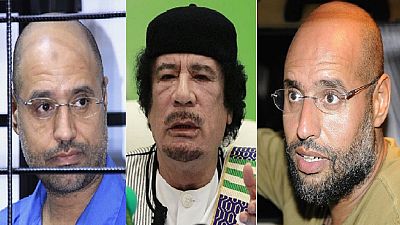

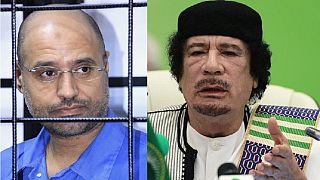
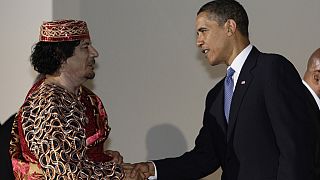
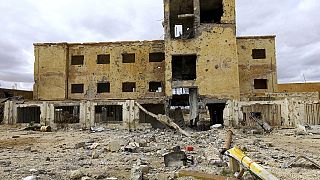
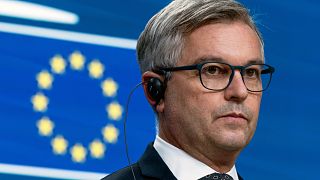

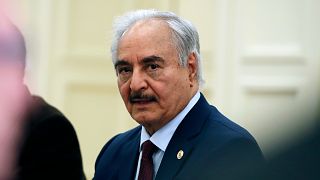


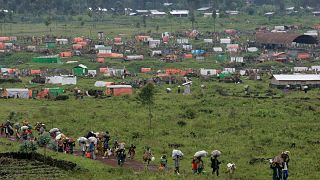
Go to video
Greece cracks down on irregular migration, says it’s "not an open corridor to Europe"
01:01
Chad’s former Prime Minister appeals to Macron after two months in detention
Go to video
French hostage families sound alarm after Israeli strikes on Iran’s evin prison
01:01
Ecuador recaptures fugitive drug kingpin 'fito' after dramatic raid
01:50
UN urges renewed political and climate action in Libya amid humanitarian and governance crises
00:52
Imprisoned singer R. Kelly alleges "murder plot" against him in prison